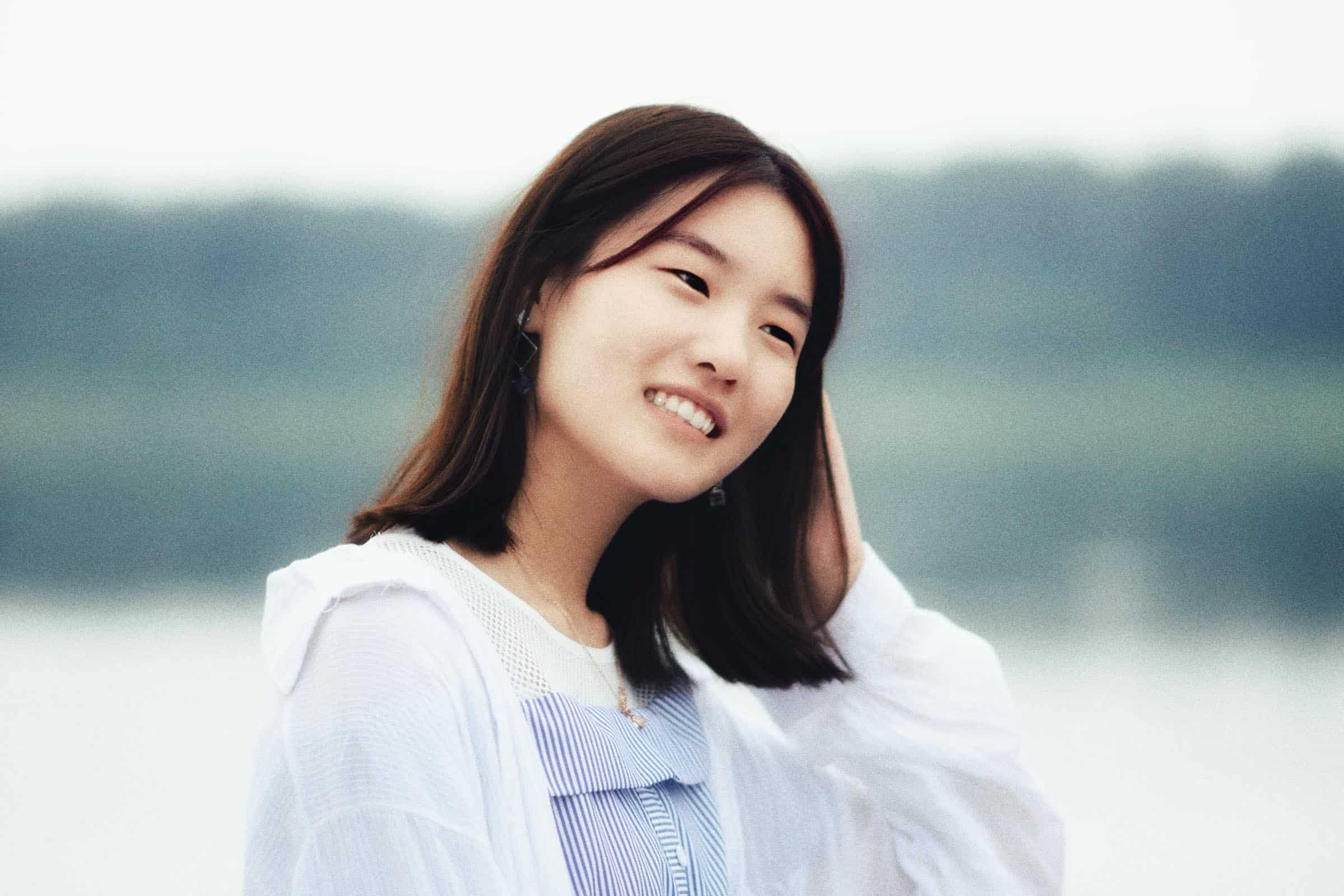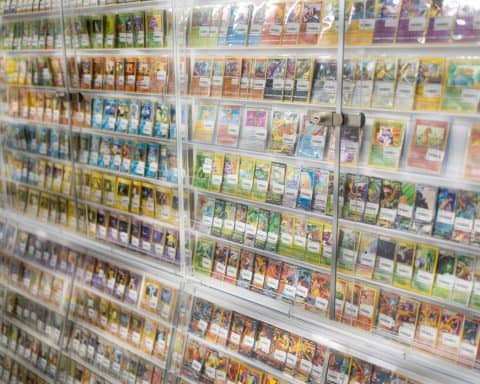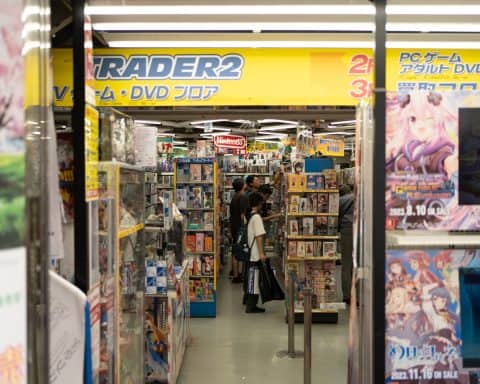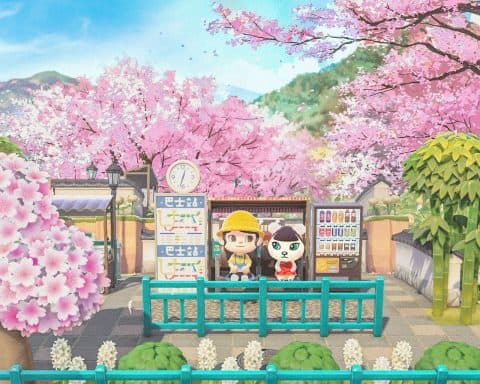Over the year I’ve currently lived in Japan, I’ve spent a good amount of that time watching everyday dramas on Japan’s various TV channels. To be brutally honest, 99% of what I’ve seen is pretty awful (“Pending Train’ sitting near the top of that list…) So it got me wondering what the real reason is that Japanese dramas aren’t that great or whether it was simply that I was watching the wrong ones.
The majority of everyday Japanese dramas are bad by Western audience standards due to a lack of funding, bad character development, far less risk-taking than in other countries, low production values, and poor acting. While this is the case with a lot of ‘everyday’ dramas, that’s not to say that’s the same for every single one of them.
Just to prove that I don’t hate Japanese TV, you’ll find 5 J-Dramas that I, along with many people do recommend watching at the bottom! But first, let’s talk a bit about the areas in which these TV shows lack.
Cultural differences
When we’re discussing the reason that Japanese dramas aren’t always great, we mustn’t forget that Japan has a number of cultural differences when compared to the West. So, when you see something in a Japanese drama that you think it’s weird, it could just be a difference in culture.
Of course, it could just be weird (Japan is known for being a little weird), or bad, but it might not be.
For instance, one thing you’ll notice in a fair few dramas is the lack of physical contact. That’s not bad acting or lack of on-screen chemistry, it’s just that Japanese people aren’t the most tactile of people.
My personal experience with hugging in Japan is that it just doesn’t happen. Perhaps that’s because I’ve not built close enough friendships, but even still I rarely see that kind of thing happen with anybody.
In a similar sense, you may see Japanese people over/underact certain parts. To be fair this is highly likely to just be bad acting, but if you take each occasion contextually, there may be a reason for it. If you’ve never lived in Japan, hearing a rather over-the-top ‘eehhhhhh?!’ might sound strange or out of place, but to me, it’s just normal.
It’s also worth noting that Japan makes no excuses for its decision to appeal only to the internal Japanese market as opposed to globally. You only have to look as far as J-pop groups to see a similar trend. When I compared J-pop to K-pop, other than a lot of angry messages, it was clear that Korea catered to the masses, and Japan was content with appealing to Japan.
Less risk-taking
A big reason that Japanese dramas can seem so bad is that a lot of them follow the same format. And why is that? Mainly because production companies don’t like risk-taking, or at least have no reason to do so.
If you’ve developed a Japanese drama which has an audience demographic of, likely, entirely Japanese people and the previous runs of your show have made money, why change it? This is of course something we see all across the world, but Japan is often even harder to take those risks or try to do something a little creative.
We’ve previously talked extensively about how hard it is for people to go out on their own and take a career path in something other than what’s expected of them. That completely stagnates any form of innovation in various fields, which is one of the wider issues of why Japan still uses retro technology. …Despite what the media will have you believe…
It’s so ingrained in Japanese people that they should fit in and do their part, a mindset that runs up the corporate ladder and to the people making the decisions for these movies. I honestly can’t imagine a single person going out on their own suggesting a story/filming/actor change that goes against the norm. The social repercussions for something like that aren’t likely to be great if it went wrong.
The Jack of all trades actor
When you’ve been in Japan for a while, you start to notice the same few faces in a lot of these dramas. If you’re thinking ‘That’s the same in my country’ you’d probably be right, but the vast majority of the Japanese actors seem to be more general ‘talent’ than specifically an actor
Perhaps this is a reason that Japanese actors aren’t always the most impressive, because they also spend their career modeling, singing, and even on talk shows. When one of these ‘actors’ has been in a bigger production, it’s a great calling card for their agency and an even better reason to increase their fees.
Low Production Values
I’ll give a lot of the Japanese dramas on Netflix a pass for this section since they normally do have pretty decent lighting and cinematography. Part of that comes from the guidelines set by Netflix which means the producers actually need to up their game and create TV to a certain standard.
It’s difficult to narrow down the reasons why J-dramas often have very low production value, but at the end of the day, I’d suggest that it comes down to the fact that Japanese consumers don’t demand anything different.
If you can pitch an idea for $1M instead of $5M with both ideas bound to keep the viewer’s interest, any production house or investor is going to go with the former. Why go overkill if you don’t have to? And yes, this relates back to what we talked about earlier which sees little creativity and little innovation in a stagnated industry.
If you can sell ad space well enough already, why change it?
…Come to mention it, the Japanese commercials (or some of them at least) are incredibly high-value production. Interesting…
5 Japanese dramas actually worth watching
Despite what you’ve just read and learned and as I mentioned earlier, there is a selection of very good J-Dramas worth watching. I’ve watched a couple of these, and the rest I’ve searched on practically every review site, and the very interesting JDorama subreddit to bring you the best recommendations.
1. Midnight Diner: Tokyo Stories
“Midnight Diner: Tokyo Stories” invites viewers into a charming world that emerges when most of the city is winding down. This Japanese drama series takes place in a small diner that opens its doors from midnight until the early hours of the morning, attracting an eclectic mix of characters. Each episode introduces a new story, providing a snapshot of various lives and experiences.
If you’ve ever walked around Tokyo (or any Japanese city for that matter) and come across those tiny storefronts with flickering lights and only a couple of chairs, this is the J-Drama that’ll invite you to sit down. The perfect show for anyone who wanted to experience this kind of atmosphere in Japan but was too nervous to try.
What makes “Midnight Diner” engaging is its focus on relatable, everyday scenarios. Through these characters and their interactions, the show explores universal themes such as love, friendship, family, and personal growth. That’s something that a lot of Japanese dramas try to do well, but fail and end up floating around on the surface.
The diner setting itself becomes a cozy backdrop for these tales, offering a sense of comfort and community amidst the quiet hours. I’ve watched a couple of these episodes and I honestly felt like I was sitting in the izakaya with them. Now I just need a bowl of karage and a beer and I’ll be able to experience authentic Japan at home!
2. Alice in Borderland
While it might not be as popular as Korean shows like “Squid Game”, I’d still be surprised if you haven’t heard of it! “This Japanese drama “Alice in Borderland” catapults its characters and viewers into a high-stakes game of survival. Following the story of a trio of friends who find themselves transported to a deserted Tokyo, the city becomes their playground. As they navigate an array of twisted challenges and dangerous puzzles, the series masterfully blends suspense, mystery, and a touch of psychological tension.
It’s pretty well acted, and I would imagine it has a fairly high budget which can’t hurt either. Not only that, but it’s also been awarded Best Director, Best Cinematography, and Best Visual/Special Effects by the Asian Academy Creative Awards.
“Alice in Borderland” truly is an adrenaline-fueled journey that has literally had me on the edge of my seat at times. At pretty much every moment during the series, the characters are forced to adapt, outsmart, and outlast one another which has them questioning alliances, and anxiously awaiting the next game.
For me, this is one of those binge-worthy series where “Just one more episode” is something I tell myself all too frequently!
3. Saiai
Love a bit of mystery and suspense? This one’s for you!
“Saiai,” a gripping Japanese drama, unfolds as a suspenseful love story intricately woven around Rio Sanada, a successful businesswoman turned unexpected focal point of a murder investigation. The narrative introduces a detective, Rio’s first love, who is resolute in uncovering the truth behind the case. Alongside, a protective lawyer emerges, determined to shield Rio from any harm. The plot takes root in a tranquil town where Rio spent her youth, marred by a mysterious disappearance in 2006. Fast forward fifteen years and the echoes of the unresolved case resurface, thrusting the figure back into Rio’s life and unraveling memories she had long buried.
With its mix of mystery, romance, and a dash of legal drama, “Saiai” offers an engaging narrative that’ll keep you hooked as the characters grapple not only with the enigma of the murder case but also with their own intertwined emotions and motivations.
This is a prime example of character development done right (something lacking in a lot of Japanese programs), and something I hope to see repeated in future releases from Japan.
4. Something’s Wrong with Us (私たちはどうかしている)
Based on the anime by Natsumi Ando, ‘Something’s Wrong with Us’ is an eight-episode-long Japanese drama that is praised by many. Minami Hamabe (playing Nao Hanaoka) is particularly highly regarded for her performance.
It’s a fascinating blend of mystery and romance, following the enigmatic story of a young woman named Minato, who harbors a hidden agenda beneath her cheerful exterior.
Set against the comforting aroma of freshly baked goods, “Something’s Wrong with Us” introduces us to Minato. As she navigates her daily life, an unexpected reunion with her childhood crush rekindles emotions she had thought were long buried. With its delicate exploration of past wounds and present-day connections, “Something’s Wrong with Us” invites us to pick away at the layers of its characters’ lives while discovering the intricate balance between love and the yearning for truth.
From all the research I’ve done for this article, this Japanese drama had pretty consistent praise all across the board. So, if you’re up for a romance/thriller kind of watch, give this a go!
5. First Love: Hatsukoi
“First Love: Hatsukoi” unveils a tale of time’s transformative touch on two lives intertwined by fate. This Japanese drama revolves around a man and a woman whose paths converged in the late 1990s during their youth, only to diverge in the early 2000s. Now, 15 years later, destiny draws them back together, and they strive to rekindle the ember of their first love through shared memories. Yae, once harboring dreams of becoming a flight attendant, saw her aspirations veer off course after a fateful accident. In contrast, Harumichi, who once soared towards becoming a JASDF pilot, found life leading him down a different trail.
The series manages incredibly well to navigate their reconnection as it explores the roads not taken and the choices that shaped their destinies. Yae and Harumichi’s reunion becomes more than a quest to revive the passion of their initial affection—it becomes an exploration of how time paints new perspectives on old connections and how the threads of first love can persist.
Interestingly enough, this series was inspired by two Hikaru Utada songs. PLUS it’s apparently really popular over here in Japan as well which just makes me want to watch it even more!
Looking for something a little more funny? I’ve done the research to bring you a list of Japan’s weirdest game shows. Apologies in advance if your average weekly viewing time is multiplied by 100!








